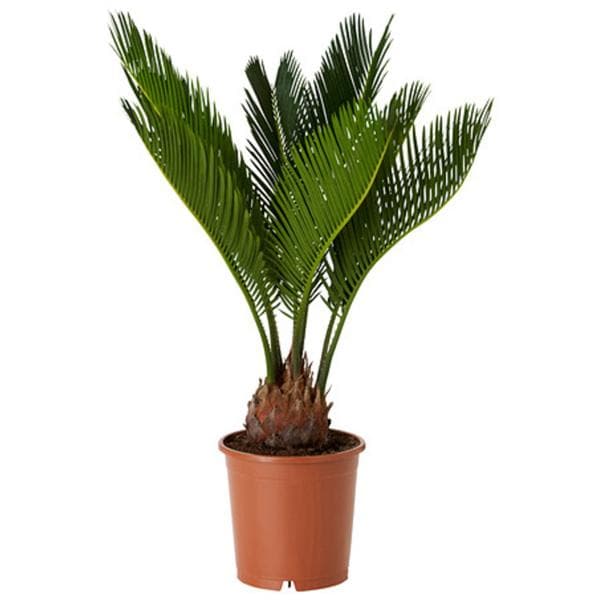
Cycas Plant, Sago Palm, Cycas revoluta - Plant
(MRP Inclusive of all taxes)
- Shipping ₹79 for entire order
- Dispatch in 7 days
- Country of origin: India

(MRP Inclusive of all taxes)
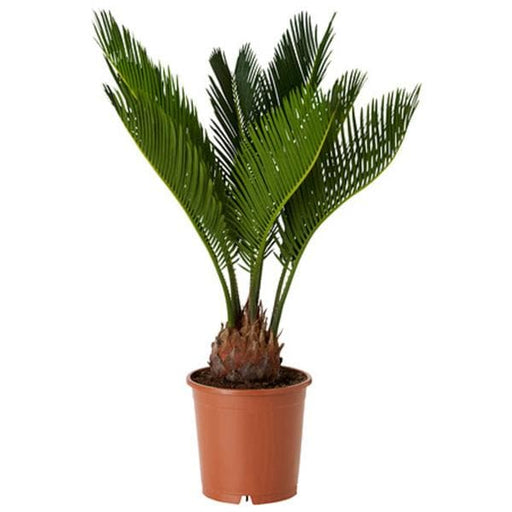 Save 16%
Save 16%
Cycas Plant, Sago Palm, Cycas revoluta - Plant The Cycas revoluta, commonly known as the Sago Palm, is a stunning and ancient plant that h...
View full details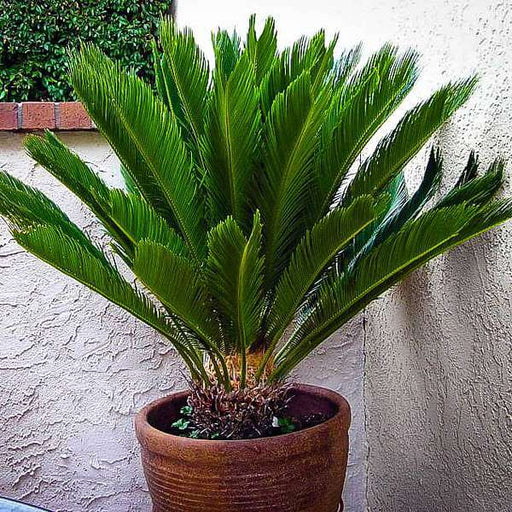 Save 12%
Save 12%
Cycas Plant, Queen Sago, Cycas circinalis - Plant The Cycas Plant, commonly known as Queen Sago, is a stunning and ancient species that be...
View full details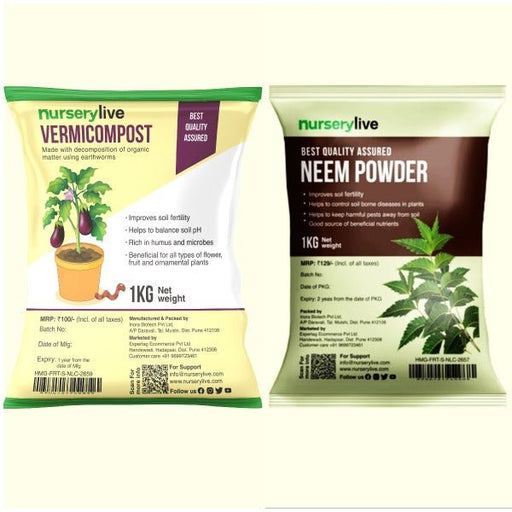 Save 15%
Save 15%
Pack of Vermicompost and Neem Cake for House Plants Transform your indoor garden with our premium Pack of Vermicompost and Neem Cake, spec...
View full details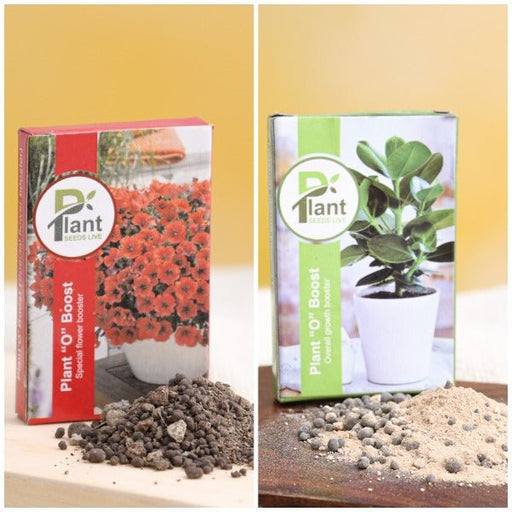
Pack of Plant Growth and Flower Boosters Unlock the full potential of your garden with our Pack of Plant Growth and Flower Boosters! This ...
View full details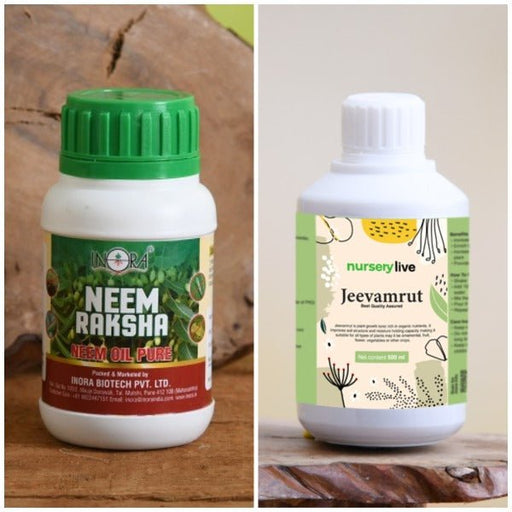 Save 38%
Save 38%
Combo of Jeevamrut and Neem Raksha for Easy Growth and Protection of Houseplants Transform your indoor garden with our exclusive combo of ...
View full details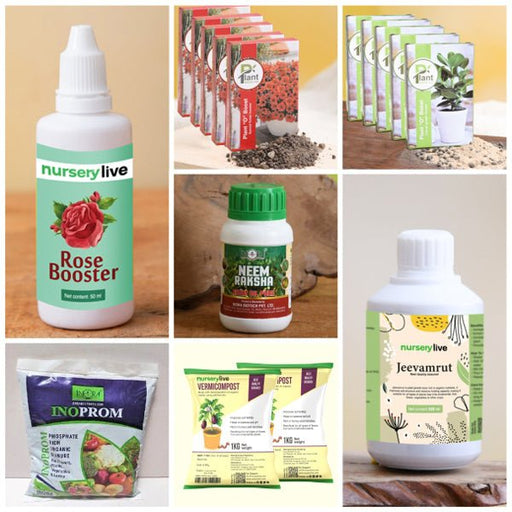 Save 22%
Save 22%
Plant Nutrients Kit (Pack of 16) for a Healthy Garden Transform your garden into a lush paradise with our Plant Nutrients Kit, featuring 1...
View full details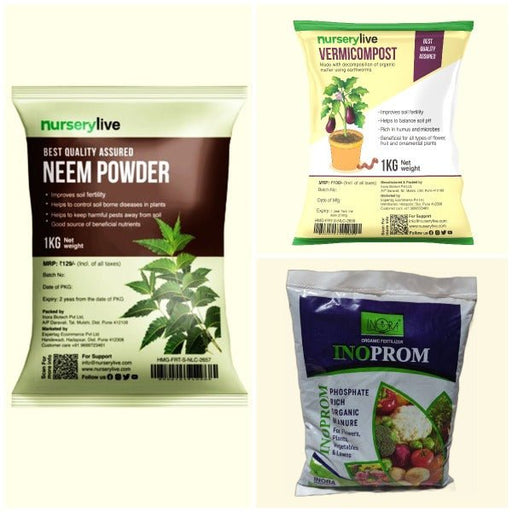 Save 16%
Save 16%
Combo of Top Plant Fertilizers Elevate your gardening game with our exclusive Combo of Top Plant Fertilizers, featuring two bags of premiu...
View full details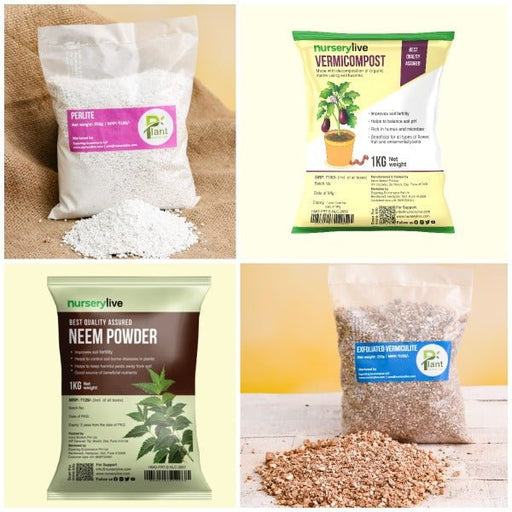 Save 24%
Save 24%
Pack of 4 Additives to Make Soil Healthy and Nutrient Rich Transform your garden into a thriving ecosystem with our Pack of 4 Additives de...
View full details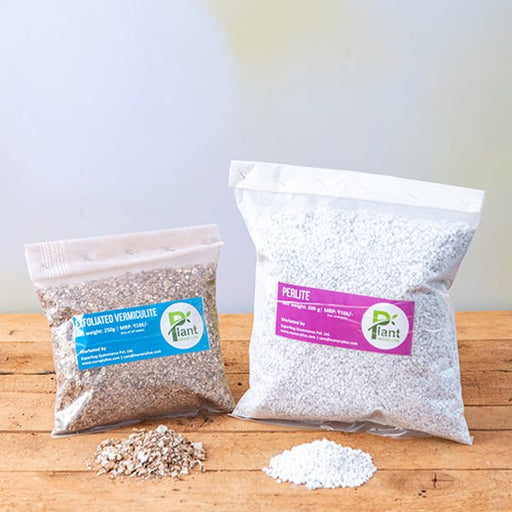 Save 30%
Save 30%
Transform your gardening experience with our premium Combo of Perlite and Vermiculite. This unique blend is designed to enhance soil aeration and ...
View full details Save 27%
Save 27%
Combo of 2 Vermicompost and Cocopeat - Enrich Your Soil Naturally! Transform your garden into a thriving ecosystem with our Combo of 2 Ver...
View full details
 Save 35%
Save 35%
Best 6 Plants for Perfect Indoor Garden Transform your living space into a lush oasis with our curated collection of the Best 6 Plants for a...
View full details
 Save up to 50%
Save up to 50%
Mini Succulent Garden Pack Transform your space with our Mini Succulent Garden Pack, featuring a delightful collection of 4 any variety beautiful s...
View full details
 Save 30%
Save 30%
5 Best Fragrant Plants Transform your garden or indoor space into a fragrant paradise with our curated selection of the 5 Best Fragrant Plants. Th...
View full details
 Save 24%
Save 24%
Set of 2 Bonsai Looking Grafted Adeniums Transform your indoor or outdoor space with our exquisite Set of 2 Bonsai Looking Grafted Adenium...
View full details Save 45%
Save 45%
Top 4 Die Hard Succulents Pack Transform your indoor or outdoor space with our Top 4 Die Hard Succulents Pack, featuring a curated selecti...
View full details
 Save 30%
Save 30%
5 Best Indoor Plants Pack Transform your living space into a lush oasis with our '5 Best Indoor Plants Pack.' This carefully curated collection fe...
View full details
 Save 25%
Save 25%
Set of 4 Evergreen Air Purifier Plant Pack Transform your indoor space into a lush, green oasis with our Set of 4 Evergreen Air Purifier Pla...
View full details| SrNo | Item Name |
|---|---|
| 1 | Cycas Plant, Sago Palm, Cycas revoluta - Plant |
The Cycas revoluta, commonly known as the Sago Palm, is a stunning and ancient plant that hails from the Cycad family. With its lush, feathery fronds and robust trunk, this plant is often mistaken for a true palm, but it is actually a cycad, a group of plants that has existed for over 300 million years. The Sago Palm is not only a beautiful addition to any garden or indoor space but also a symbol of resilience and longevity.
What makes the Sago Palm special is its unique appearance and adaptability. This plant can thrive in various environments, from tropical to subtropical regions, making it a versatile choice for gardeners. Its slow growth rate and longevity—often living for over 100 years—add to its allure, making it a cherished heirloom plant.
One of the standout features of the Sago Palm is its ability to produce stunning, cone-like structures when mature, which can be either male or female. These cones are not only visually striking but also play a crucial role in the plant's reproduction. Additionally, the Sago Palm is known for its air-purifying qualities, making it an excellent choice for improving indoor air quality.
The Sago Palm plays a vital role in its ecosystem by providing habitat and food for various wildlife species. Its ability to thrive in poor soil conditions makes it an excellent choice for erosion control and landscape restoration projects. Additionally, its air-purifying properties contribute positively to indoor environments, promoting healthier living spaces.
If you think
Ah, the Cycas Plant, also known as Sago Palm, is not a true palm but a cycad! This ancient beauty boasts feathery leaves and a stout trunk, making it a living fossil. Perfect for adding a touch of prehistoric charm to your garden, it’s like having a dinosaur in your backyard—minus the roaring!
Caring for your Sago Palm is like pampering a diva! It loves bright, indirect sunlight and well-draining soil. Water it when the top inch of soil is dry, but don’t drown it—this isn’t a swimming pool! Fertilize during the growing season, and watch it strut its stuff like the star it is!
Yes, the Sago Palm is a sneaky little villain! All parts of the plant are toxic to pets, especially the seeds. If your furry friend decides to munch on it, they might experience some serious tummy troubles. So, keep this botanical beauty out of paw’s reach, or you might end up with a very unhappy pet!
Absolutely! The Cycas revoluta is a fabulous indoor companion. Just ensure it gets plenty of bright, indirect light and a cozy spot away from drafts. It’s like having a tropical vacation in your living room—minus the sand and surf. Just remember, it prefers to be on the dry side, so don’t overwater!
Watering your Cycas Plant is a delicate dance! Generally, you should water it every 1-2 weeks, allowing the top inch of soil to dry out between drinks. Think of it as a spa day—too much water, and it’ll feel like it’s drowning! Keep it hydrated but not soggy, and it’ll thrive like a superstar!
Sago Palms are picky about their soil, but not too picky! They prefer well-draining soil, like a mix of potting soil and sand or perlite. Think of it as their personal beach—loose, airy, and fabulous! This helps prevent root rot, which is the ultimate party pooper for your plant.
Patience is a virtue with Cycas revoluta! This slowpoke typically grows about 3-5 inches a year. It’s not in a hurry to become a giant, but that’s part of its charm. Think of it as a fine wine—aging gracefully and becoming more beautiful with time. Just give it love, and it’ll reward you!
Propagation of Sago Palm is like a treasure hunt! You can do it through seeds or offsets, but it requires a bit of finesse. Seeds can take ages to germinate, while offsets are quicker and easier. Just remember, patience is key—this isn’t a fast-food plant, but a gourmet experience!
Your Cycas Plant can attract some uninvited guests, like scale insects and mealybugs. These little critters love to munch on its leaves, but fear not! A gentle wipe with soapy water or insecticidal soap can send them packing. Keep an eye out, and your plant will remain the belle of the botanical ball!
Yes, Cycas revoluta is a fabulous outdoor plant, especially in warm climates! It loves full sun and can handle a bit of drought. Just make sure it’s in well-draining soil, and it’ll thrive like a beachgoer soaking up the sun. Just be cautious of frost—this diva doesn’t like the cold!
Sago Palms are the Methuselahs of the plant world, living up to 200 years! With the right care, they can outlive you and your great-grandchildren. They’re like the wise old sages of the garden, offering timeless beauty and a touch of history. So, plant one, and you’ll have a lifelong companion!
The Cycas revoluta is not just a pretty face! It’s often used as an ornamental plant in gardens and landscapes, adding a tropical flair. Additionally, its seeds have been used in traditional cuisine (after proper processing, of course). Just remember, it’s more for looks than lunch—leave the cooking to the chefs!